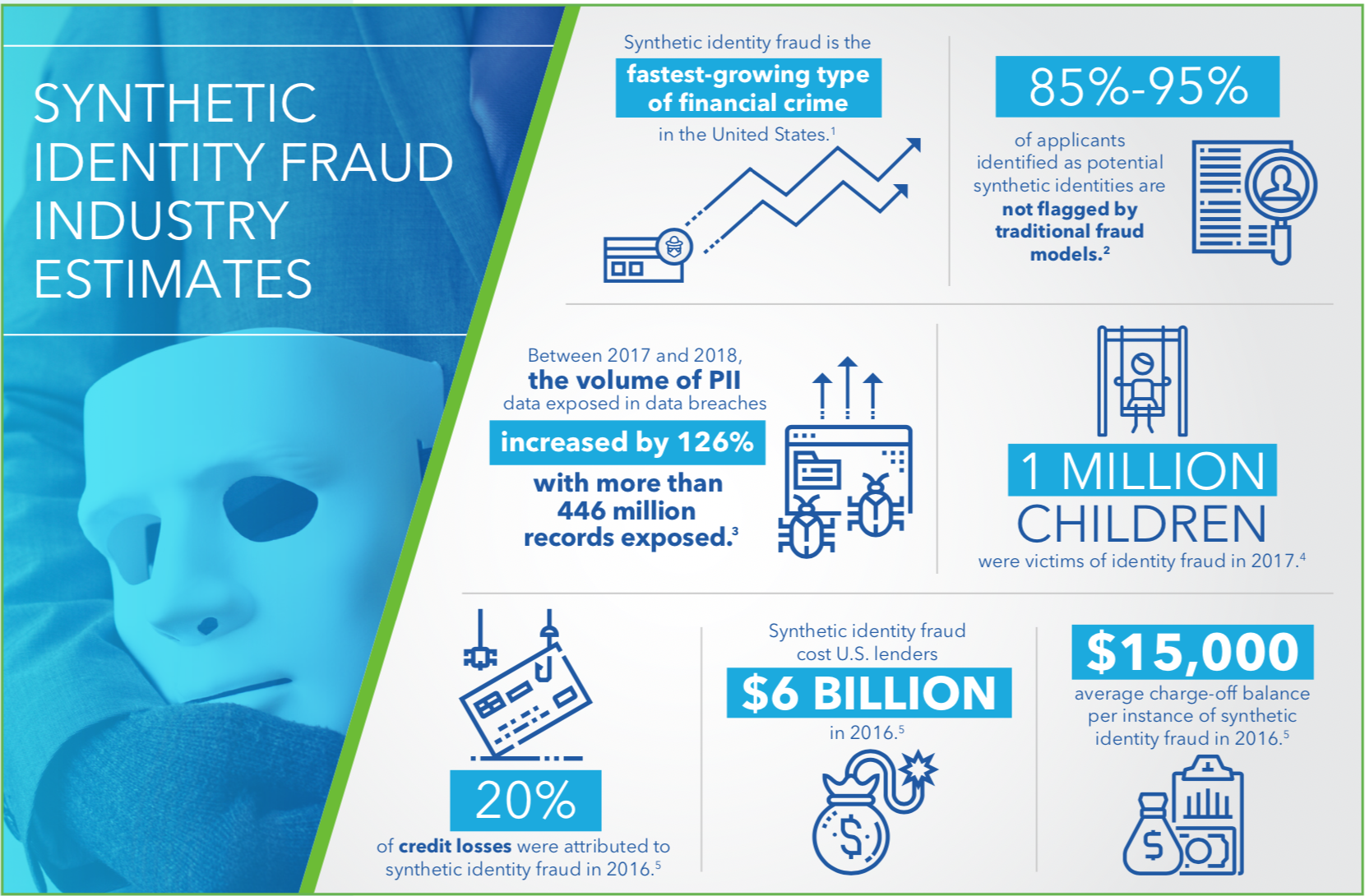The Federal Reserve published a whitepaper this week that claims that the fastest growing type of fraud in the US is Synthetic Identity Fraud.
The article which you can read here, alerts the public that synthetic identity fraud is more prevalent in the United States than in other countries because identification in the United States relies heavily on static personally identifiable information (PII), including Social Security numbers (SSNs).
The Federal Reserve wrote the paper to raise awareness and encourage action on the growing problem of synthetic identity payments fraud in the United States.
Key Statistics on Synthetic Identity Highlighted
They shared some great statistics on synthetic identity:
- 85% to 95% of applicants identified as potential synthetic identities are not flagged by traditional fraud models
- 1 million children were victims of identity theft in 2017 alone.
- Synthetic Identity cost US Lenders over $6 Billion Dollars a year
- In 2016 the average charge off loss due to each case of synthetic identity was $15,000
- 20% of credit losses in 2016 were attributed to synthetic identities
- The volume of stolen PII data increased by over 126% between 2017 and 2018 and it is driving the instances of synthetic identity up.

Synthetic Fraud is Growing in The US Because it Is Generally Tolerated by Financial Companies
In my view, and something the Federal Reserve fails to note in the whitepaper, Synthetic Identity is growing in the US because it is generally tolerated by many financial institutions. Because it is tolerated an environment is created where synthetic identity thrives and grows.
Some banks and lenders in the US knowingly accept certain forms of synthetic identity accounts that have been profitable to them in the past.
A good example of this is recent immigrants that provide falsified social security numbers to establish credit. While their intent is to pay the loans, the identities are still synthetic. These loans are profitable but they still perpetuate an environment ripe for abuse of true synthetic fraudsters.



